
可能
¥235.99
摄影是通过可见之物抵达不可见之境的方法之一。我试图用照片建立起一种“想象”乃至“幻象”,这些照片拍摄于2003年至2015年,来自几乎整个中国。人生是一段旅程,照片是我对一些秘密的询问,同时也是对方给我的回答。

带你探析思考的本质5册丛书
¥235.99
世界上有两种游戏,一种是有限游戏,一种是无限游戏。商业游戏就是一场无限的游戏。在这场无限的商业游戏中,没有所谓的时限,没有所谓的终点,更不存在所谓的赢。游戏的首要目标就是让游戏一直玩下去,只有这样,才能成为无线游戏中的头号玩家。 许多领导者总是将“赢”挂在嘴边,沉迷于“赢得竞争”,用有限思维来参与这场游戏。却不知道,在商业无限的游戏中,我们必须停止思考赢,转而思考如何建立一个足够强大、足够健康的组织,让它能够经久不衰,不被游戏淘汰。只有用无限思维来玩商业这场无限游戏,我们才能朝着永远存续的目标前进。 我们不能决定所要参加的游戏是有限的还是无限的,但我们能决定用什么样的思维来参与。只有追求高尚的事业、建立彼此信任的团队、尊重值得较量的对手、拥有攸关存亡的变通性、表现领导的勇气,我们才能长久且持续地繁荣下去,才能始终处在无限游戏的中心。

学霸精进指南(套装共8册)
¥235.90
《人间修炼指南》:全书五大核心板块,超25个戳中痛点的现实圈套,超60条颠覆思维的辛辣见解,覆盖职场、投资、婚恋、生活陷阱、人生规划等多方面痛点,让你在混乱的世界里快速突围。 《学习天性》:在《学习天性》一书中,她打破了“大脑静态”神话,送给我们6把钥匙,帮助我们解锁无限的学习潜能。 《思维模型》: 本书内容通俗易懂,是提升思维能力的实用指南,适合每一个渴望提升思维能力的人。 《学霸记忆法》:学霸们争相学习的应试秘籍,一本书帮你成为记忆高手。 《成为学霸》:如何记笔记,才能加深记忆?如何背知识,才能又快又好?摆脱假努力,学霸有方法! 《你所谓的稳定,不过是在浪费生命》:引发百万年轻人反思生活的真实之书!别在该拼搏的年纪,选择躺平! 《向上》:是清华学霸张自豪全新力作,一部给年轻人的成长精进指南! 《学习高手》:一本教会你如何学习的书!
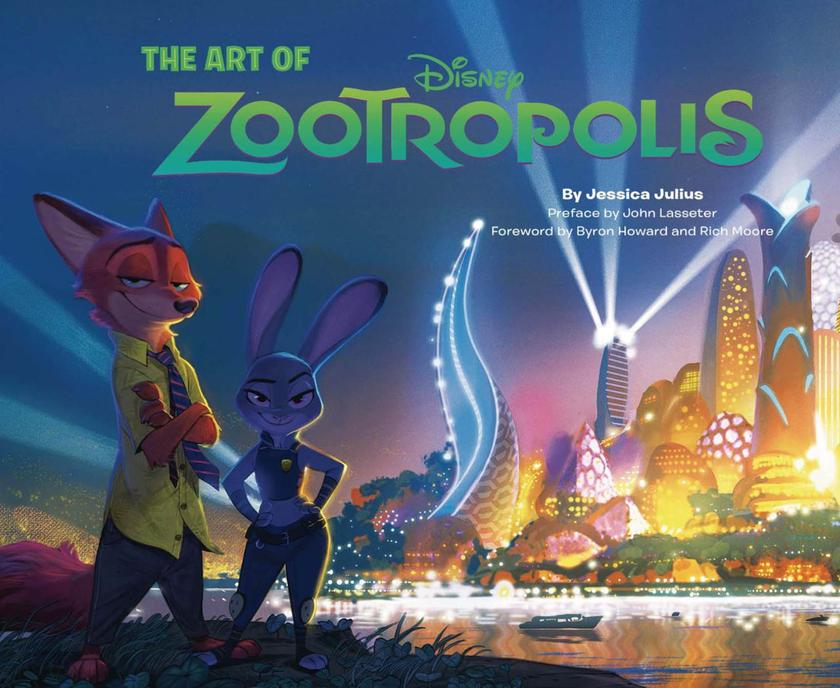
Art of Zootropolis
¥235.34
Disney's newest animated feature, Zootropolis, is a comedy-adventure starring Officer Judy Hopps, a rookie bunny cop who has to team up with fast-talking scam-artist fox Nick Wilde to crack her first case in the all-animal city of Zootropolis. This lushly illustrated book offers a behind-the-scenes view of the elaborate artistry involved in creating the film.

魔戒三部曲+霍比特人合集
¥235.00
《魔戒》一部为了世界的光明未来,誓死抵抗黑暗的伟大史诗。 至尊魔戒,拥有统御众戒、奴役世界的力量,黑暗魔君索隆苦觅已久。为了守护家园,魔戒继承人弗罗多毅然离开宁谧淳朴的夏尔,踏上前途未卜的旅途。与他同行的是睿智的巫师、勇敢的人类、美善的精灵、坚毅的矮人和热爱和平的霍比特人。征途见证了勇气与友谊。跃马客栈里的重重暗影,卡扎督姆桥的怒吼炎魔,勇猛骁勇的洛汗骠骑,范贡森林的上古树须,凄厉嘶嚎的邪恶戒灵,陡峭山壁旁的巨型毒蛛……每个人各自抵御着无尽的诱惑与磨难,承担起属于自己的善恶考验。 平凡的霍比特人战栗在末日烈焰面前,他能战胜这噬灭灵魂的至尊魔戒吗? 全书共三部:《魔戒同盟》《双塔殊途》《王者归来》。 艾伦·李(《指环王》三部曲,奥斯卡*艺术指导奖)50幅恢弘经典插画完美收录。
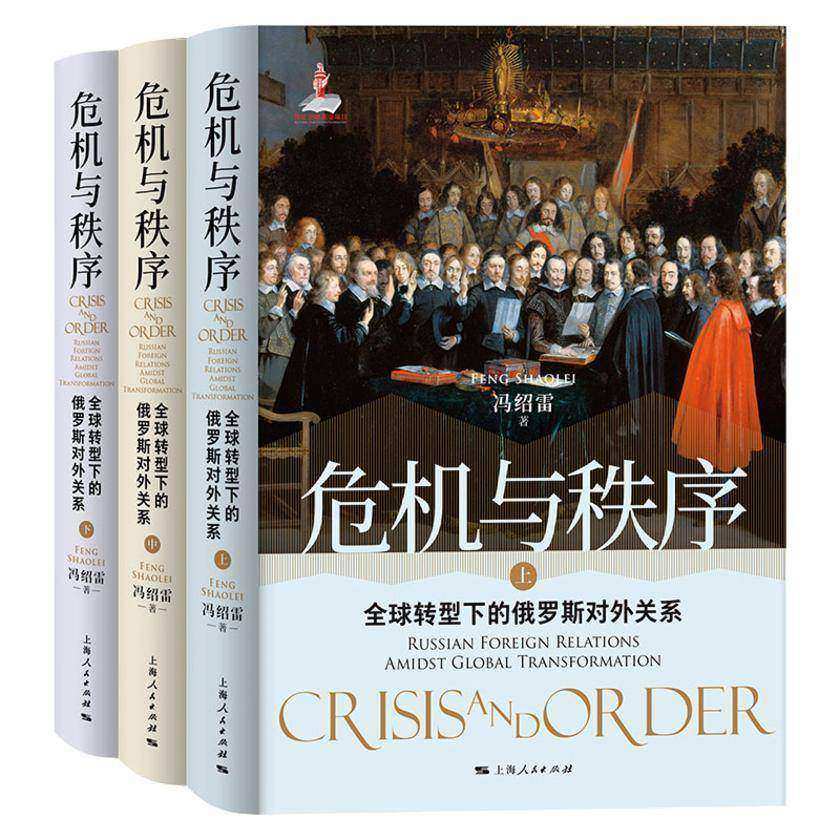
危机与秩序:全球转型下的俄罗斯对外关系
¥235.00
本书以自20世纪80年代以来的全球转型的程为大背景,以世纪之交以来俄罗斯与大国关系为切,探讨了欧亚地区一系列危机与世界秩序演之间的关系。对此,在作多方位思考之后,作者将所获得的的认知与结论归结为两个词:“危机”与“秩序”。 一方面,作者以危机现象为分析重,讨论了未来,俄罗斯能否超越“危机应对式”的外交战略,一个新的面向全球的格局:既有政治与经济的均衡,又有国内与国际的均衡,兼顾俄罗斯本身处境与国外反响之间的均衡,以及当下与长远的平衡。另一方面,作者以全球转型为思辨的轨迹,一步讨论了一个更加重要的问题,即未来的世界秩序将走向何方?作者提出,全球化和国际转型本身是一个需要不断调整、纠偏和完善的历史程。当前的调整期,不过是其中的一个片段而已。但是,如果把握得当,短暂的调整期对于全球转型的宏大程,乃至未来世界秩序的更替,都会起到重要作用。

中洲远古三大传说(三册插图本)
¥235.00
《贝伦与露西恩:插图本》世间至美的爱情诗篇,人类与精灵首联姻,结合作者自身爱恋经历,夫妇合葬墓碑上镌有贝伦与露西恩之名。凡人贝伦与出身不朽的精灵一族的露西恩相爱,然而他们的爱情起初无法得到露西恩的父亲——精灵王辛葛的首肯。为使贝伦知难而退,辛葛提出了求娶露西恩的条件:贝伦必须完成一个看似没有希望完成的任务。这个任务就是传奇的核心,它促使贝伦与露西恩一同立下了无上的英雄功绩:从初代黑暗魔君,比后世的索隆还要强大恐怖的魔苟斯那里,夺回一颗精灵宝钻。 在《贝伦与露西恩》中,克里斯托弗·托尔金作出了全新的尝试:将故事从大背景中抽取出来,利用作者本人在不同创作阶段写出的一系列文稿,对人物与情节的发展脉络进行梳理和对比,从而向读者展示贝伦与露西恩的故事在数十年的光阴中所经历的演变全貌。" 《胡林的子女:插图本》悲剧英雄图林的经历,有世界各地神话的遗绪,又有赫克托耳、科里奥兰纳斯等辈的悲怆。堕落的维拉魔苟斯擒获人类族长胡林,对其威逼利诱软硬兼施,强迫其屈服。胡林的凛然让魔苟斯心生毒计,转而诅咒胡林的儿女——图林和涅诺尔兄妹,并强迫胡林眼见两人遭遇种种不幸…… “这个述及图奥在刚多林的旅居、他与伊缀尔·凯勒布琳达尔的结合、埃雅仁迪尔的出生、迈格林的背叛、城邦的陷落和幸存者的逃离的故事,这个在家父对纪元的想象中处于核心地位的故事,家父平生写出的完整版本却仅有一个,便是那部创作于青年时代的文稿,这样的事实可谓极不寻常。”——克里斯托弗·托尔金 《刚多林的陷落》讲述了图奥在刚多林的旅居,他与伊缀尔·凯勒布琳达尔的结合、埃雅仁迪尔的出生、迈格林的背叛、城邦的陷落和幸存者的逃离的故事。这个故事在托尔金对纪元的想象中处于核心地位的故事。遗憾的是,托尔金平生写出的完整版本却仅有一个,便是那部创作于青年时代的文稿。但托尔金确实着手重写过,但他并未完稿。 《刚多林的陷落》也是克里斯托弗·托尔金编辑整理的后一部托尔金作品。"

“皮囊之下尽是枯骨”-法医秦明(套装10册)
¥234.70
一本写满预言的日记,两个下落不明的女人,皮囊之下,尽是枯骨,“如果我死了,请调查我的丈夫!法医秦明全新系列守夜者,高能对决黑暗中的22个逃犯!!隐藏在尸体中的无声证词,又将指向什么样的真相?新增万字番外,《无声的证词》热血回归,一起窥探黑暗中的秘密……
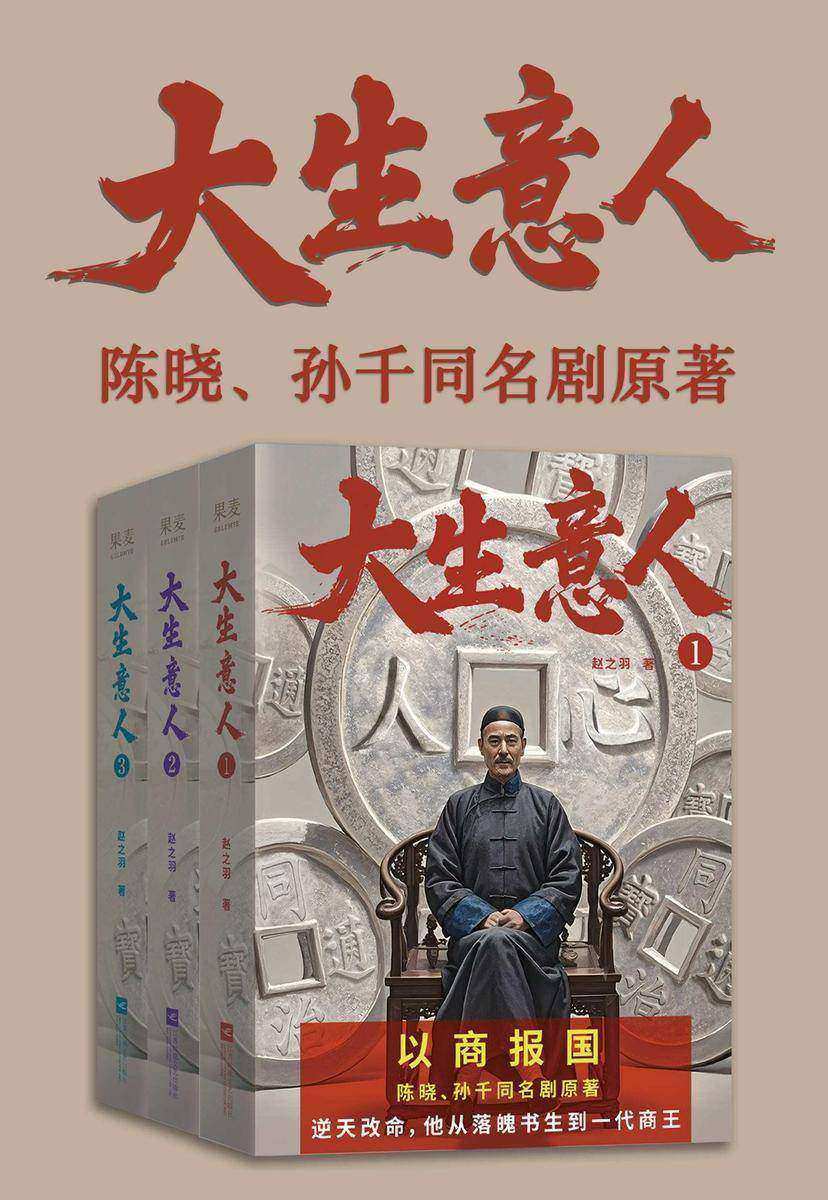
大生意人(陈晓、孙千、罗一舟、朱亚文、李纯主演同名电视剧原著)
¥234.00
生意人,是苦命人,更是天命人——谨以本书,致敬商业,致敬企业家! 清朝末年,读书人古平原惨遭陷害被流放,他背负逃犯身份,绝境求存,化儒为商,凭借惊人的勇气和智慧,以行商入场、以票号立足、以茶发家、以粮济万民,与晋商、京商、盐商、漕帮等逐一交手并获胜,逆天改命,成就“一代商王”,*后更以商报国,联手天下商帮共同对抗洋商,拯救民族经济于水火?? 《大生意人》同名剧由陈晓、孙千主演,张挺导演。

传统文化故事集
¥234.00
《传统文化故事集》是易中天先生写给自己外孙的书,讲老祖宗传下来的做人的智慧、做人的道理,助孩子在快速变化的时代有一个稳定的内核,成为真正的人。 例如,庄子告诉我们活好自己,不跟任何人比,因为人和人天生不一样,人和人也可以不一样。孟子告诫我们,清清白白做事,堂堂正正做人,承认错误不丢人,反而更能赢得尊重。周易揭示了关于世界的朴素真相:世界永远在变,*不变的就是“变”,所以不必害怕变化,智者永远喜欢变化、拥抱变化、与时俱进。孔子则告诉我们,教育的目标是培养真正的人——真实、自由、快乐而有礼。 7—13岁适读,用老祖宗的智慧给孩子兜底。
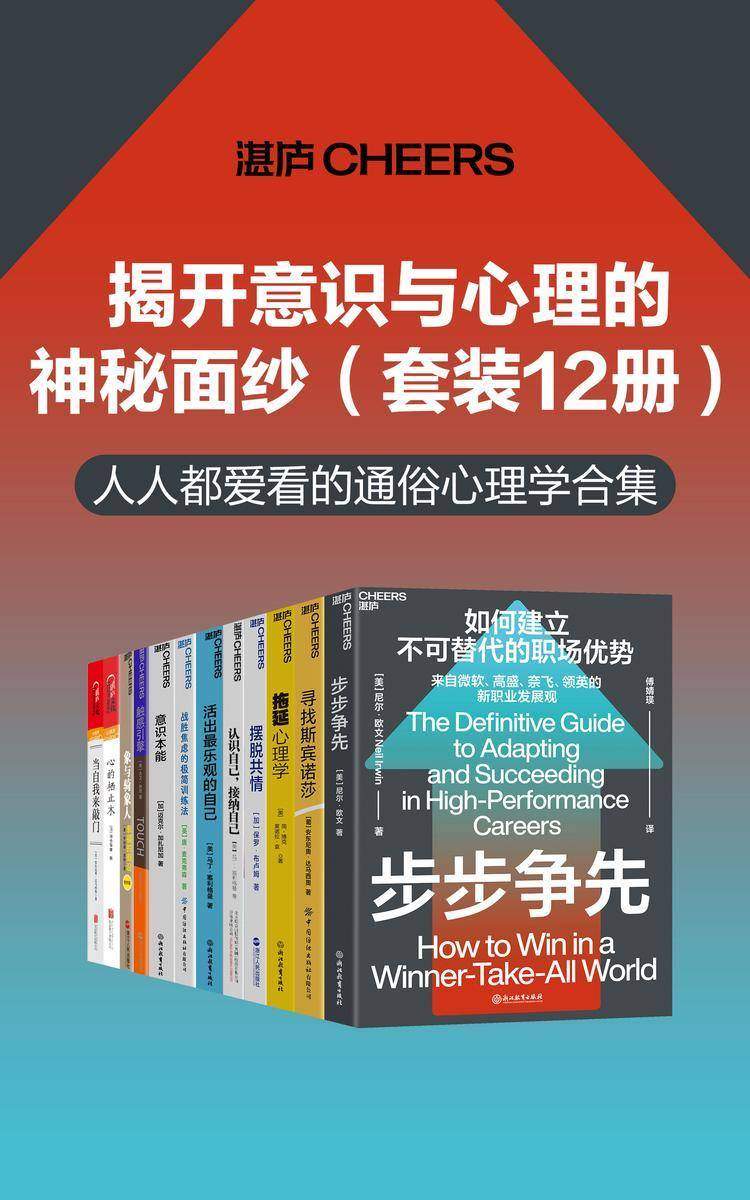
揭开意识与心理的神秘面纱(套装12册)
¥233.10
轮岗代表了被舍弃吗?一定要追求稳定、可以工作到退休的岗位吗?自由职业意味着脱离职场吗?《纽约时报》知名记者尼尔·欧文从行业中的佼佼者处,为当代职场人寻找这些可能会困扰他们职业生涯发展的问题的答案。 欧文在本书中总结了职场人需要具备的三大素质:成为魅力型连接者、打造蕞有价值的专业能力组合、建立成长型思维。本书立足于目前复杂多变的经济环境,帮助你从管理者视角,建立起经济学思维。 书中的经验教训将帮助你在深思熟虑后,做出适合自己的一系列选择,把握住一生中的25万个小时的工作时间,在回顾自己在工作和休闲、财富和个人满足感等方面做出的权衡与牺牲时,对自己的选择感到满意,在赢家通吃的世界里“步步争先”。

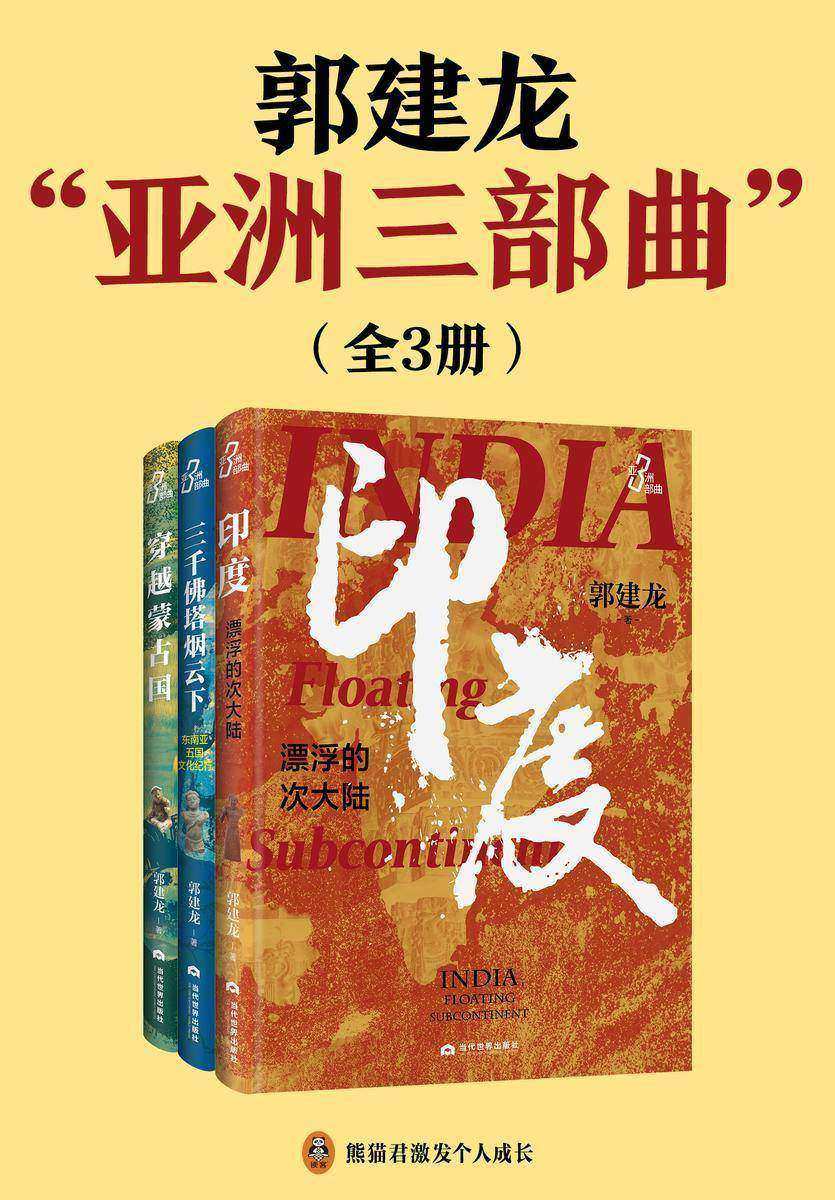
《亚洲三部曲》(《印度:漂浮的次大陆》《三千佛塔烟云下:东南亚五国文化纪行》《穿越蒙古国》)要了解中国,就需要了解中国周边的文化和历史!
¥233.00
要了解中国,就需要了解中国周边的文化和历史。历史作家郭建龙实地考察之作“亚洲三部曲”!一场印度5000年文明历史的狂野之旅!一场神秘多彩的东南亚文明历史之旅!一段跨越八百年的蒙元帝国之旅!俞敏洪、林达、罗新、杨斌、刘子超 、陆大鹏、罗振宇、杜君立联袂推荐! 《印度:漂浮的次大陆》 55天、70个城市、上百处文化遗址、20000多公里……带你零距离体验印度次大陆的遥远历史与现实! 在印度,郭建龙遇到了无数旅游者和印度人:工程师、教授,也有士兵、民工、流浪汉,与他们一起睡过车站,吃过饭,说笑过,打闹过……他一边重温印度伟大的历史文化,一边切实体会着印度的当下,在历史与现实间反复穿越。郭建龙从印度历代王朝的兴盛与更替到纷繁多彩的各种宗教在印度的生发入手,以政治、经济、历史等多个视角去展现印度5000年的历史与现实,给读者展现了文明古国的灿烂与辉煌,以及世俗生活的柔性包容和生机勃勃。 《三千佛塔烟云下》 越南、束埔寨、泰国、缅甸、老挝东南亚五国文化纪行!4个多月、5个国家、70多个城市文化遗址…… 越南与占婆王国的分合;柬埔寨吴哥王朝的灿烂;泰国素可泰王朝的昌盛;缅甸蒲甘王朝、贡榜王朝的荣光;老挝澜沧王国的艰难前行;中南半岛的苦难辉煌一一展现。在多方考察,无数次的奔波、交流和资料查阅后,郭建龙梳理了这个区域的历史、发展逻辑以及历史上与中国既陌生又不得不保持接触的特殊关系。 《穿越蒙古国》 一人一单车、26个昼夜、2000多公里,从成吉思汗的家乡到蒙古人*后攻克的土地! 这是一程用双脚丈量的艰辛骑行,也是“历史文化行者”郭建龙的蒙古国文明历史之旅——这里是比丝绸之路更广阔的欧亚大通道,这里有历史上令人惊叹的游牧民族,他们暴风般地征服重塑了整个世界,也在广袤的帝国疆域内创造了繁荣与和平。 草原、高山、冰峰、湖泊,蒙古包、那达慕骏马和豪爽的蒙古姑娘,与途中邂逅的各色旅人畅谈,听蒙古族的后裔追忆帝国的荣光。

王铎年谱长编(全四册)精
¥232.80
王铎,字觉斯、觉四、觉之,号嵩樵,河南孟津人。明天启二年士,崇祯间历任右谕德、南京翰林院掌院、礼部右侍郎兼翰林院侍读学士,十三年迁南京礼部尚书,以丁艰未赴,十七年国变前夕升礼部尚书,未赴任。弘光间任文渊阁大学士,位至次辅。顺治二年五月与钱谦益等于南京迎降清军,次年起仕清,任礼部侍郎管弘文院事,直至去世。 王铎是明末清初*重要的书法家之一,也是一个历仕明清两朝的“贰臣”,在艺术史、文化史与政治史上都有很高的研究价值,本谱以王铎一生行迹、交往与诗文书画活动为中心,以年月日编次,以煌煌百余万字勾勒出王铎的一生。全书征引丰富、考证精细,除对王铎本人的文集、书作、刻帖、手稿、信札等行系统的整理与考证外,还将其同时期的书家、友人的大量诗文集、笔记、信札等做了搜集与细读,具有重要的文献史料价值与学术研究价值。
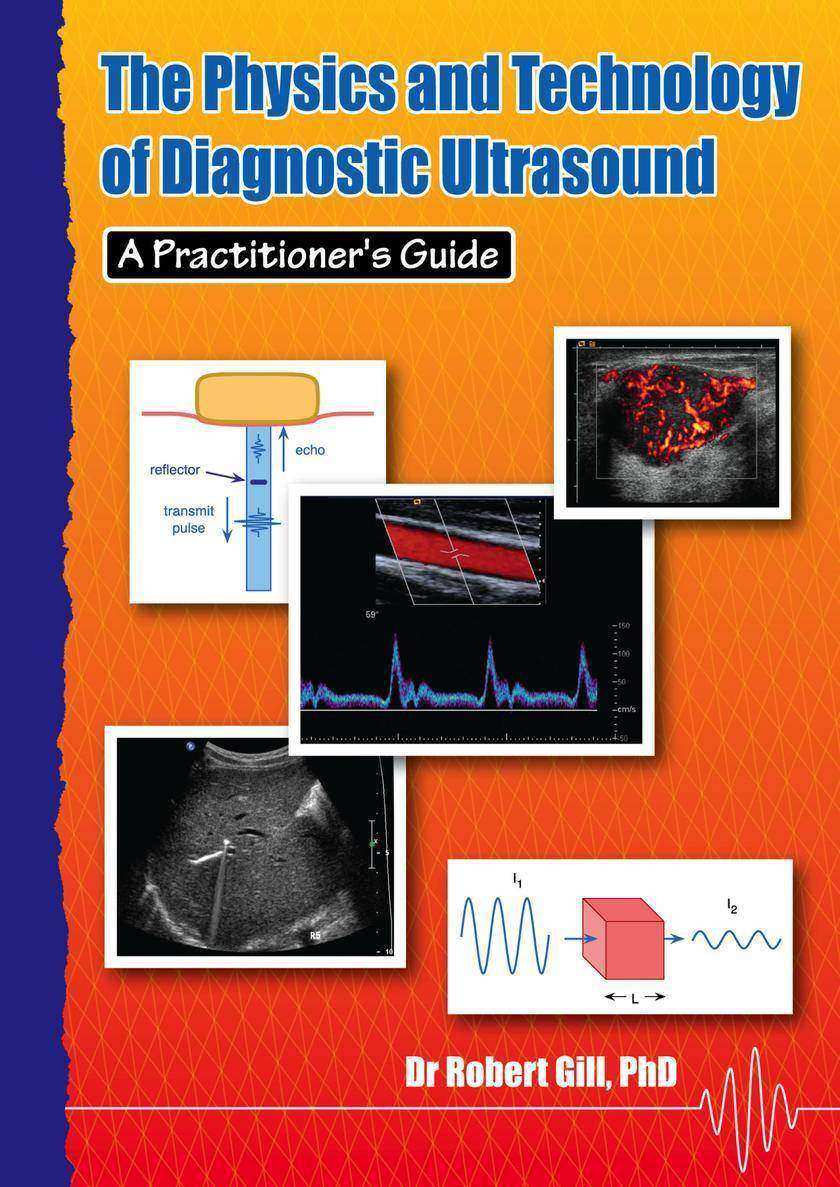
The Physics and Technology of Diagnostic Ultrasound: A Practitioner's Guide
¥232.01
The Physics and Technology of Diagnostic Ultrasound: A Practitioner's Guide

The Emma of Normandy 2-book Collection
¥231.61
In this year was King Edward slain at even-tide, at Corfe-gate, on the fifteenth before the kalends of April, and he was buried at Werham without any royal honours. Nor was a worse deed than this done since men came to Britain … ?thelred was consecrated king. In this same year a bloody sky was often seen, most clearly at midnight, like fire in the form of misty beams. As dawn approached, it glided away.
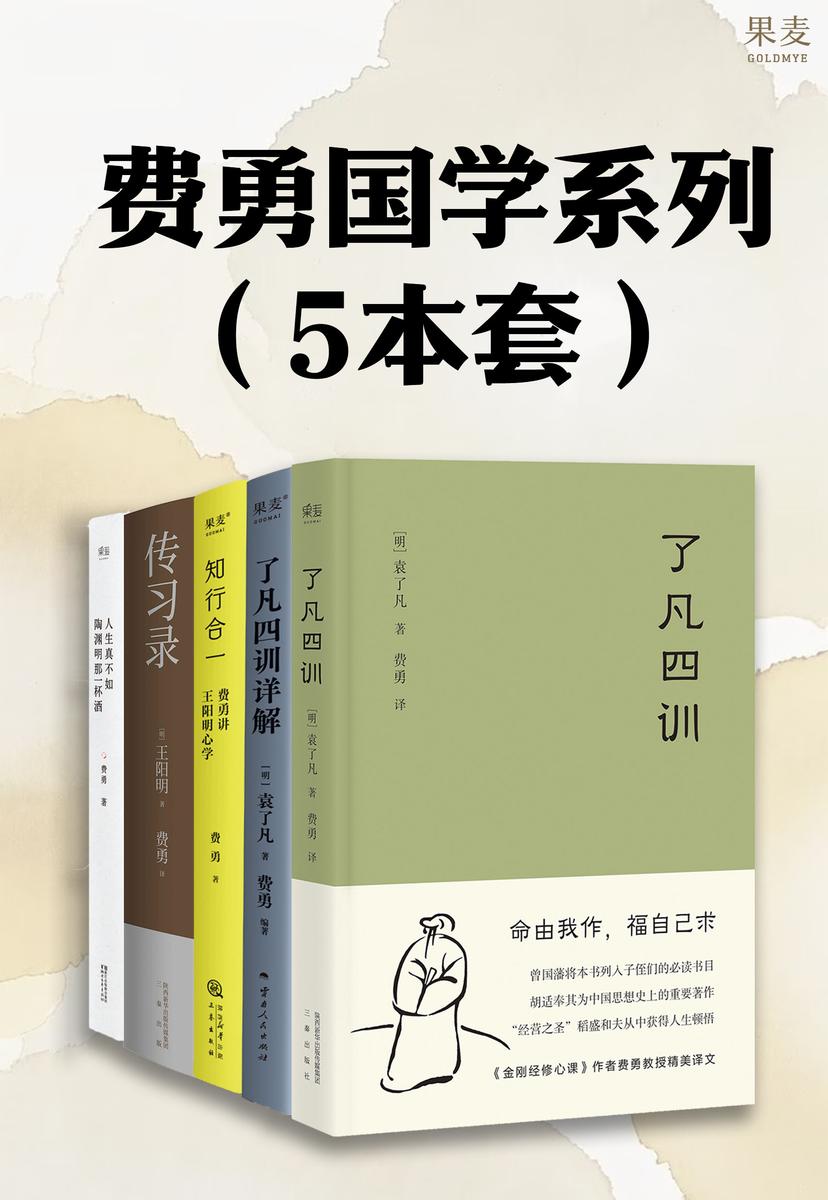
费勇国学系列(5本套)
¥231.60
陶渊明的酒,酿出生活的诗意;王阳明的光,照亮心头的迷雾;袁了凡的笔,改写命运的轨迹。五大维度构建完整修身体系:诗意栖居 × 心性澄明 × 知行合一 × 改命造运 × 现代转化。一套书,读懂五百年东方智慧真谛,在不确定的世界里活出确定的自己,找回生命的诗意与力量!

渡边淳一 精品套装(全12册)
¥231.50
1901231408 仁医 1901231406 背叛 1901231410 化妆 1901231412 男人不专注 女人不反省 1901232259 恋川 1901223044 男人是动物,女人是植物 1901231414 女神 1901232263 浮岛 1901231416 岁月 1901232265 留白 1901232269 男人是鲑鱼 女人是鳟鱼 1901232267 影绘
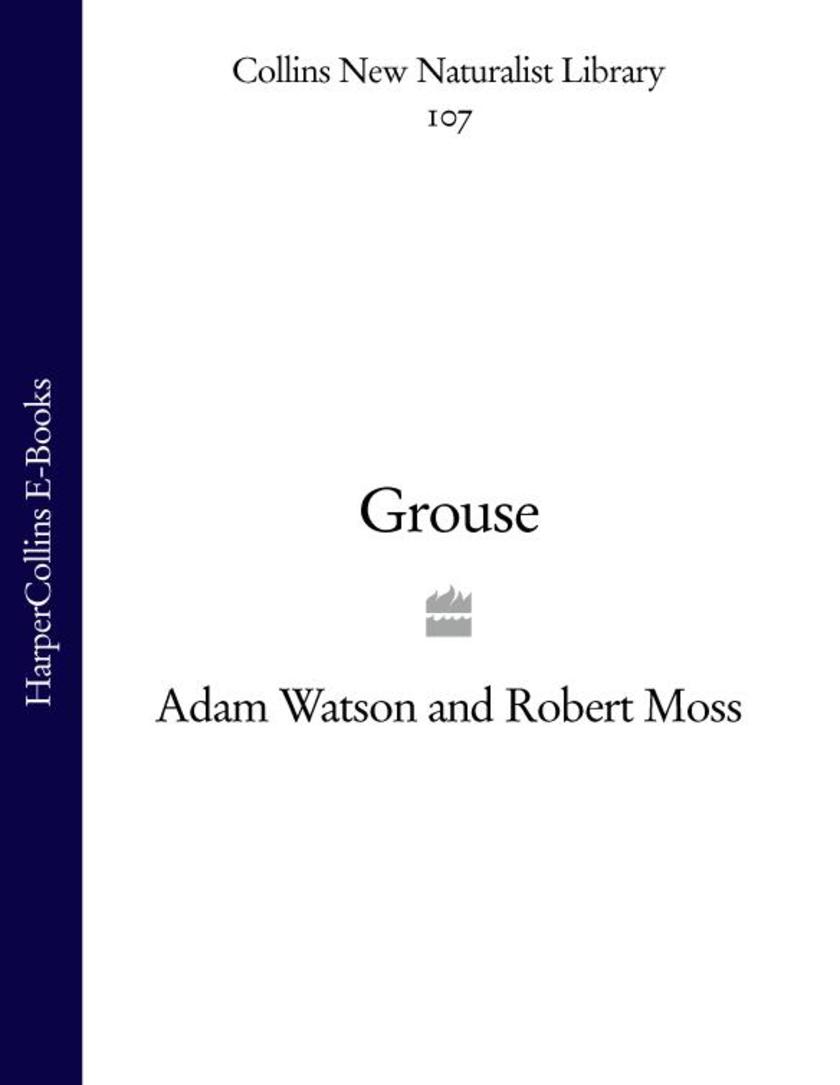
Grouse (Collins New Naturalist Library, Book 107)
¥231.22
With less than twenty species worldwide and only four British and Irish species, the grouse is surprisingly well-known. Its habitats are diverse and relatively remote – ranging from deep forests, through open moorland, to Scotland’s highest peaks. ‘Grouse: The Natural History of British and Irish Species’ covers four of the most emblematic species of our upland regions. Collectively they have the most fascinating life histories of any bird group, individually they have their own stories to tell: the ptarmigan is a resident of our highest mountain areas, the black grouse is famous for its extraordinary mating displays, the capercaillie is one of our largest birds and the red grouse, whilst no-longer one of the few British endemics, is one of the most heavily researched species. All four face similar problems, including habitat loss, predators, pests, disease and food shortage. This is compounded by issues of managed animal populations and controversy surrounding the commercial worth of grouse. This volume in the New Naturalist series, written by two of the world's leading grouse specialists, offers a fascinating insight into the natural history and biology of these birds, including aspects of their behaviour, the historical relevance of their names, the reasons behind population fluctuations and international conservation efforts.

Southern England (Collins New Naturalist Library, Book 108)
¥231.22
Illustrated with beautifully detailed photographs throughout, New Naturalist Southern England comprehensively explores the formation of these wonderful landscapes that are so universally admired. Most people share an enthusiasm for beautiful and breathtaking scenery, explored variously through the physical challenge of climbing to the top of the tallest mountains or the joy of viewing the work of a painter; but while easy to admire from a distance, such landscapes are usually difficult to explain in words. Harnessing recent developments in computer technology, the latest New Naturalist volume uses the most up-to-date and accurate maps, diagrams and photographs to analyse the diverse landscapes of Southern England. Peter Friend highlights the many famous and much loved natural landscapes of the southern half of England, ranging from the Chalk Downs to the bays of Cornwall, Devon and Dorset, and provides detailed explanations for the wide variety of natural events and processes that have caused such an exciting range of surroundings. Setting apart the topography that has resulted from natural rather than man-made occurrences, Friend focuses on each region individually, from East Anglia to London and the Thames Valley, and explains the history and development of their land structures through detailed de*ions and colourful diagrams.
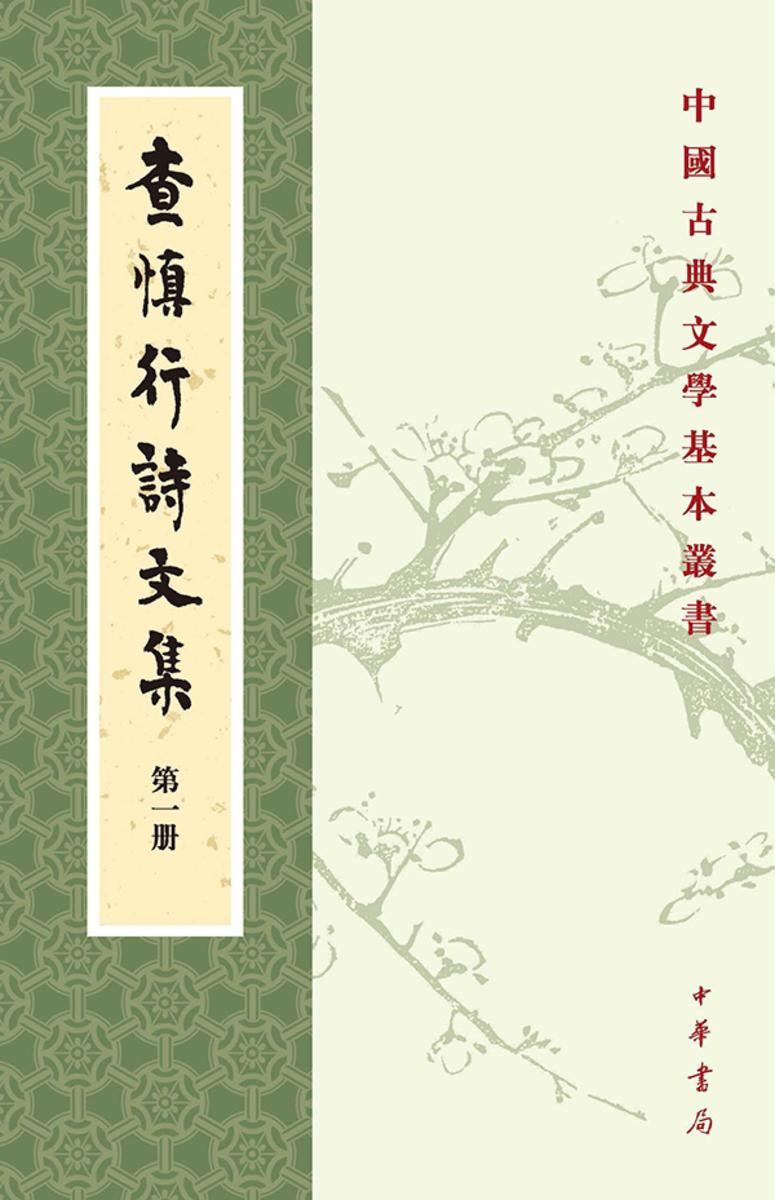
查慎行诗文集--中国古典文学基本丛书(试读本)
免费
查慎行(1650—1727),清代著名诗人、学者,初名嗣琏,字夏重,号查田,后改名慎行,字悔余,号他山、烟波钓徒,晚年居初白庵,称查初白,浙江海宁人。康熙四十二年(1703)士,特授翰林院编修,直内廷。五十二年(1713)乞休归里。查慎行诗学东坡、放翁,受经史于著名学者黄宗羲,受诗法于桐城诗人钱澄之;与朱彝尊为中表兄弟,得其奖誉,声名早著。朝后从军西南,随驾东北,又饱览各地风光。自朱彝尊去世后,为东南诗坛领袖。一生著作宏富。查慎行诗文造诣极高,为清前期名家之一。

神农本草经(线装本)全二册【试读本】
免费
《神农本草经》,又称《本草经》或《本经》,托名神农所作,实成书于汉代,是中医四大经典著作之一,已知最早的中药学著作。全书分三卷,记载了365种药物的形、色、气、味、主治功用、产地采收等信息,以三品分类法,分上、中、下三品。《神农本草经》搜集、整理、总结了秦汉之前的药物学经验成果,初步确立了四气五味、七情配伍等中药理论基础,是对我国中医药的第一次系统总结,对后世的本草文献、药物理论、临床用药有着重大贡献和深远影响。 线装本以孙氏问经堂校刻的孙星衍、孙冯翼辑本为底本,采用电脑排印,施加新式标。




 购物车
购物车 个人中心
个人中心



